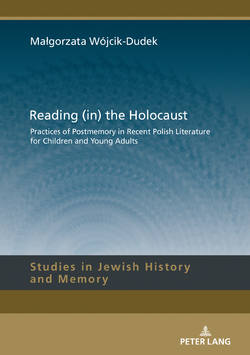Читать книгу Reading (in) the Holocaust - Malgorzata Wójcik-Dudek - Страница 22
На сайте Литреса книга снята с продажи.
An Academy or a Cheder?
ОглавлениеIt is next to impossible to read The Academy of Mr Inkblot in disjunction from its historical context. As argued by Mariusz Urbanek, historical associations are practically unmissable: “On 1st September127 […] Filip brings to the magical school the doll he has constructed. […] Krzysztof Gradowski, the writer ←58 | 59→and director of a film based on Brzechwa’s novel, interpreted The Academy quite unambiguously. The doll made by Filip the barber is no longer Alojzy, a future jewel of the academy, but… Adolf. The king’s herald summons to defend the country and not to surrender a single button to the wolves […]. Wearing black uniforms and carrying torches aflame, the wolves that invade the kingdom of Mateusz march to the rhythm of ‘Strong jaws, strong will and we shall conquer the world,’ a hit by the heavy-metal band TSA, a scene redolent of Leni Riefenstahl’s Triumph of the Will, a famous apotheosis of fascism.”128
Many readings of The Academy have referenced the war, which proves that the historical moment when the fairy tale was written and published has been recognised as one of its interpretive keys. It has been suggested that the character of Mr Inkblot was modelled on Janusz Korczak,129 Franc Fiszer, a popular Warsaw bon-vivant, Brzechwa himself or his father.130 A range of real-life antecedents have also been marshalled for Adaś Niezgódka, though more often than not he has been regarded as Brzechwa’s alter ego because, like the writer ←59 | 60→himself, he does not like barley soup and carrots, and he collects buttons from coats, jackets and blazers.131
These interpretive shreds, spectacular and interesting to readers as they are, sorely lack the coherence which could be expected in the case of a text as central to the history of children’s literature as The Academy of Mr Inkblot is. For The Academy is not merely a formal and rhetorical experiment performed on the literary fairy tale, but also, given the moment when it was written, an interpretation of history or, more precisely, of the Event, which, though disastrous, leads to the renewal of the world. This is why Mr Inkblot can be viewed not just as a master and a teacher who attempts to reclaim a world deformed by the disaster, but first and foremost as a wise melamed, a rabbi perhaps, who re-institutes the lost order.
